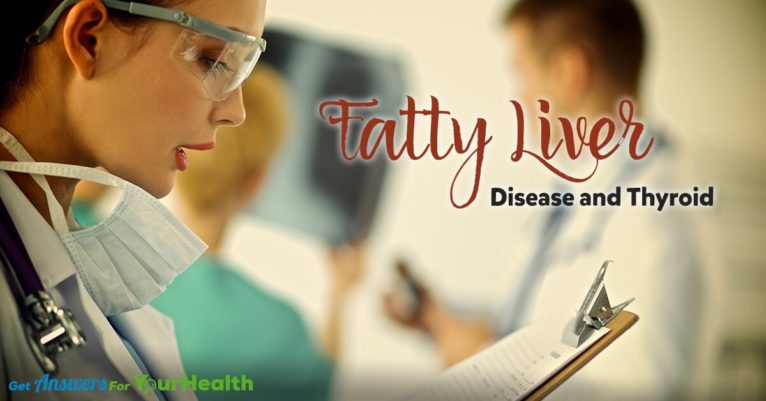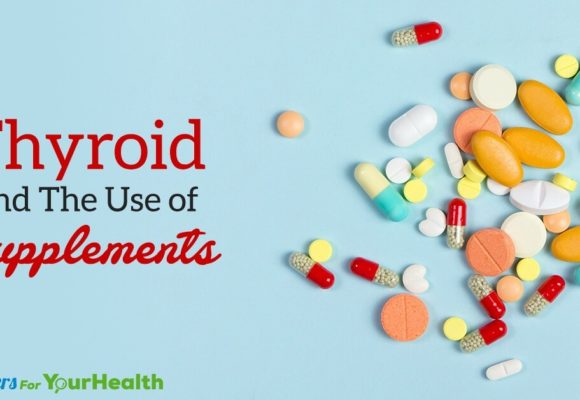1) Grab a FREE copy (Value $14.95) of one of my books Thyroid Symptom Overload
Just pay shipping $7.95 for any US orders. Or, if you want to pay full price plus shipping, order from Amazon :)
2) Take our Thyroid Quiz today and find out what "Thyroid Type" you have
This quiz will help you quickly discover where your symptoms are stemming from.
3) Join Our Thyroid Advocate Membership Site - Natural Thyroid Academy
FREE for a limited time. No credit card required.
4) Work with me and my team privately
Schedule your FREE 15 minute phone consultation and we can find out the best way to help you specifically.
This may be a surprise for you….there is a connection between fatty liver disease and thyroid function. The truth is, research shows that if there is a certain imbalance of hormones, the risk of fatty liver disease increases. Before getting into the how, let us first understand what fatty liver disease is and how it can be initiated because of thyroid issues. By reading the information below, you will gain a better understanding of what is going on.
Fatty Liver Disease
The liver and other organs contain a certain amount of fat inside. But if the fat content increases and deposits are more than 5-10% of the weight of the liver, then it means that you may have acquired fatty liver disease. Keep in mind that fatty liver disease is divided into two parts, alcoholic liver disease and nonalcoholic fatty liver disease.
As the name implies, alcoholic fatty liver disease occurs because of excessive use of alcohol. Genes can sometimes be passed down from your parents, but if you are a habitual drinker or have recently started drinking heavily, then you are susceptible to alcoholic fatty liver disease, where fat starts accumulating in the liver in large quantities.
Nonalcoholic fatty liver disease on the other hand can be caused by, but not limited to obesity, high cholesterol, diabetes, and hormonal issues like hypothyroidism. It also takes place because of autoimmune or inherited liver disease, viral hepatitis, malnutrition, and side effects of some kinds of medications.
Nonalcoholic fatty liver disease or NAFLD is not an irreversible condition. If detected in time, it can easily be managed. The problem begins when the disease goes unnoticed for too long. This could lead to cirrhosis, scarring of the liver, which can eventually turn to liver failure. But this happen very infrequently and most people find out in time that they have the disorder. Here are some common signs and symptoms of NAFLD, Nonalcoholic fatty liver disease:
- Exhaustion
- Nausea
- Loss of appetite and loss of weight
- Weakness
- Confusion, foggy brain or poor judgment
If you feel that you have any of the above mentioned symptoms, you need to see your doctor. The doctors will often run some blood tests and ultrasounds to see whether or not you have the condition. Once proper diagnosis has been made, you will be asked to make some changes to your life. Keep in mind that there is no specific treatment or medication for NAFLD. What your medical specialist tell you may include:
- Changing your dietary habits. If you are used to consuming too much processed and packaged food items, or foods that are high in fats and cholesterol, you will be asked to switch to organic and nutritious foods. This is because you need all the important nutrients to keep your body healthy and fit.
- You will be asked to lose weight. Just the difference of 5 pounds can make a huge change in your condition. The more weight you lose, the better you will feel.
- Exercising will help you lose weight, but also keep your cholesterol and sugar under control. Be sure to work out for 30-40 minutes 5 days a week. You may even want to start with walking.
- You will be asked to stop consuming alcohol, even if you have NAFLD. You will notice a visible difference in your condition once you stop consuming alcohol.
- If you have diabetes, your doctor will help you manage that. Diabetes can have a direct impact on fatty liver disease.
- Your thyroid will also be checked. Studies show that if your thyroid gland is not producing enough hormones, then your liver can be affected.
What is Hypothyroidism
Hypothyroidism is when the body is unable to produce enough thyroid hormones, which happens because of an under functioning thyroid gland. It is considered to be one of the most common thyroid problem among women. Problem is, thyroid problems don’t come alone. Hypothyroidism can lead to quite a few other medical conditions like thyroiditis, Hashimoto’s disease, congenital hypothyroidism, and iodine imbalance.
Some common signs and symptoms of hypothyroidism are:
- Weight gain
- Constipation
- Fatigue
- Lowered heart rate and movements
- Intolerance to cold
- Muscle pain and pain in the joints
- Pins and needles
- Decreased sweating
- Thin fingernails
- Dry skin and hair
- Insomnia
- High cholesterol
- Anemia
- Loss of libido
- Recurring infections like UTI
If you are diagnosed with hypothyroidism, it is not the end of the world. The symptoms can usually be managed very effectively. Please discuss with your doctor what the best option is for you.
Connection between NAFLD and Hypothyroidism
Studies have made it pretty clear that people who have high TSH levels or low levels of thyroid in their bodies, particularly those who have been diagnosed with hypothyroidism are the ones who are more likely to develop NAFLD. But why does this happen?
When your hormones are imbalanced, they have a direct effect on your liver. What happens is that lack of thyroid hormones gives rise to the accumulation of fat in the entire body, including the liver. T4 is converted in the liver to T3. When the liver is not functioning like it should, the conversion process can become impaired. But the problem does not end here.
If the liver is not functioning normally, then it will affect other hormones as well. The liver is what helps the hormones to break down and get out of the body. If they are not broken down, they stay in the body and their excessive presence can lead to different symptoms and/or conditions.
Does this mean there is nothing you can do about it? Off course not! What you need to do is get your thyroid levels checked, particularly if you have the above symptoms. Once you have been diagnosed with hypothyroidism, you will then need to make sure that it is managed and remains in control. If it gets out of hand, it can easily lead to nonalcoholic fatty liver disease or a congested liver. Also realize that many people who have had blood work performed, notice that it comes back “normal” even though they have symptoms and feel anything but normal. This is very common in women who have been diagnosed with Hypothyroidism or Hashimoto’s Thyroid.
References
- https://www.webmd.com/hepatitis/fatty-liver-disease#2
- https://www.endocrineweb.com/professional/research-updates/thyroid-disorders/connection-between-hypothyroidism-non-alcoholic-fatt
- http://www.wilsonssyndrome.com/is-the-liver-affected-by-thyroid-function/
- https://www.medicalnewstoday.com/articles/163729.php








